Watch the recording HERE.
Date: November 15, 2025
Venue: Online
On November 15, 2025, Dr. Beloo Mehra, Director, BhāratShakti, was invited to deliver an online talk as part of the weekly YES Talks. YES – Yoga, Education and Spirituality – is an initiative started by Dr. Ramesh Bijlani of Sri Aurobindo Ashram, Delhi Branch, based on the idea – Yoga is education. Education is incomplete without spirituality. Spirituality in practice is yoga.
The session on November 15 was anchored by Ms. Arunima Pathak from Team YES, who also introduced Dr. Mehra at the beginning. Dr. Mehra spoke on the topic – Vedic Yajña: “A mutual debt binds man to the Supreme”. More than 20 people participated in the online session. The talk explored the inner significance of Vedic Yajña connecting it with the great importance of self-giving and surrender in Integral Yoga.
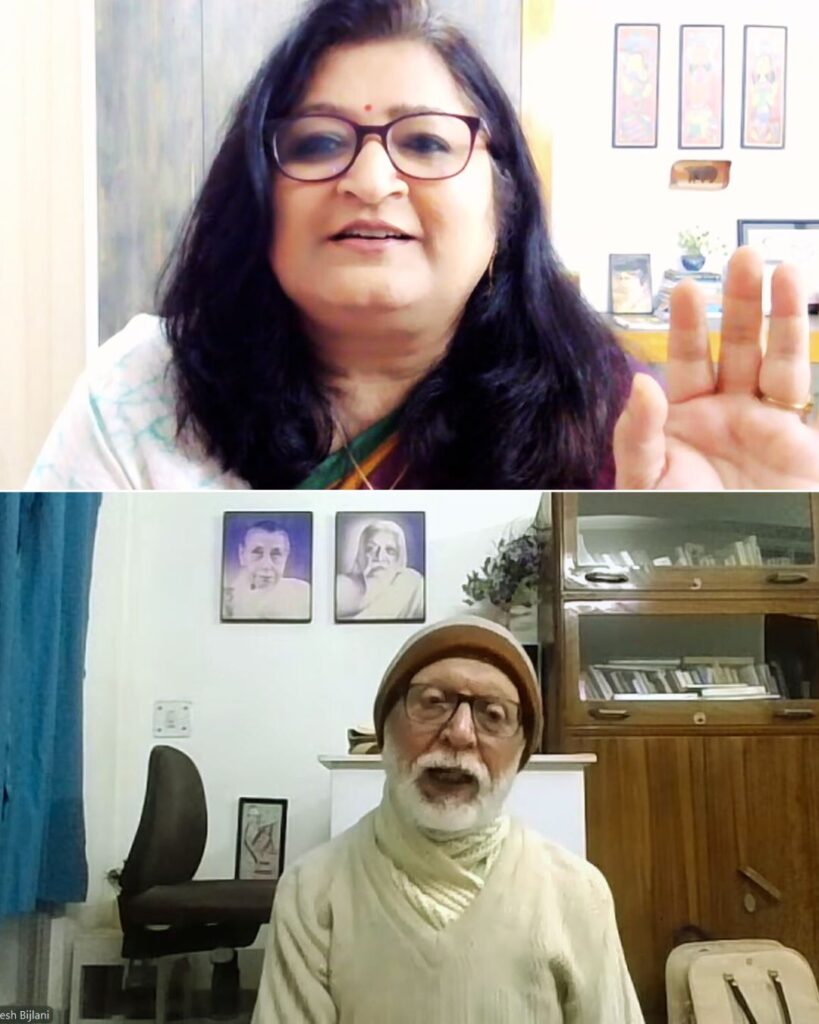
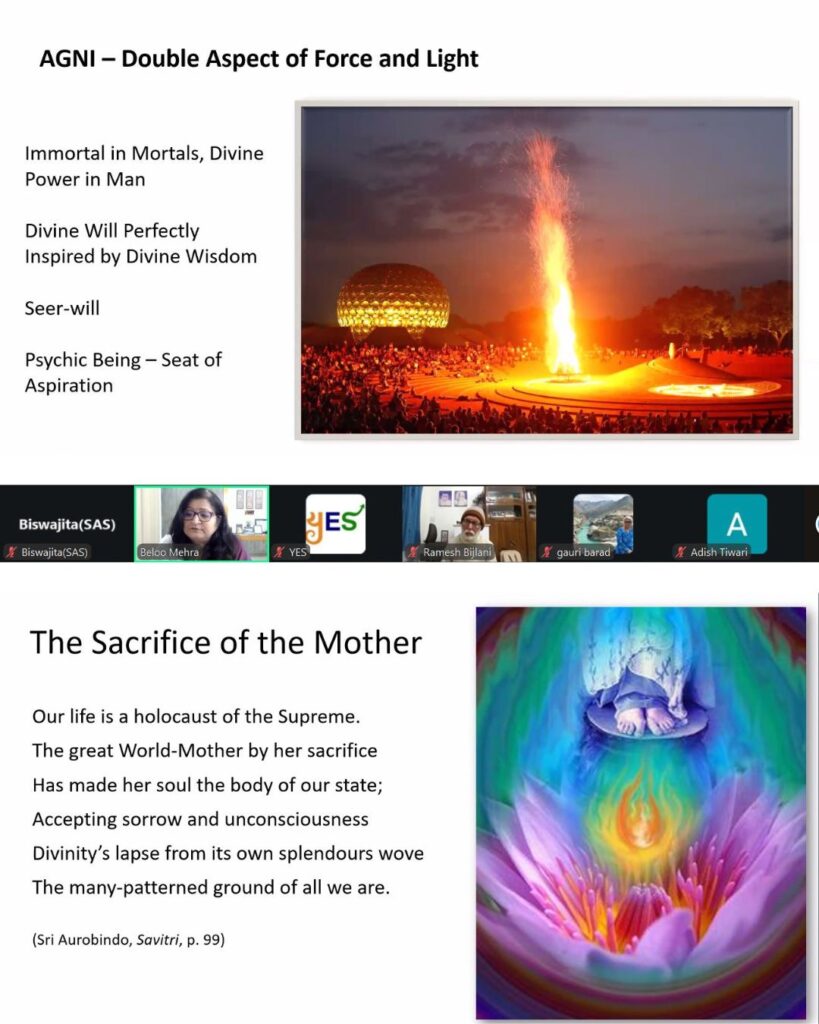

Dr. Mehra pointed out that the Veda is not just about ritualistic hymns, it is truly an ancient psychological science and art of spiritual living. Sri Aurobindo calls it a creation of an “early intuitive and symbolic mentality.” And he has given humanity a deeply symbolic and psycho-spiritual interpretation of the Veda.
The Vedic seer’s aspiration was to rise from the limited mortal state into illimitable immortality. And in this journey, Yajña is the instrument. Dr. Mehra pointed out that one can understand Yajña as a pilgrimage, a battle, and a travel toward the gods. Agni, the divine fire, is the pathfinder and leader. She explained how yajña is in fact a mutual sacrifice—human consciousness ascends toward the divine, and the gods descend into human nature.
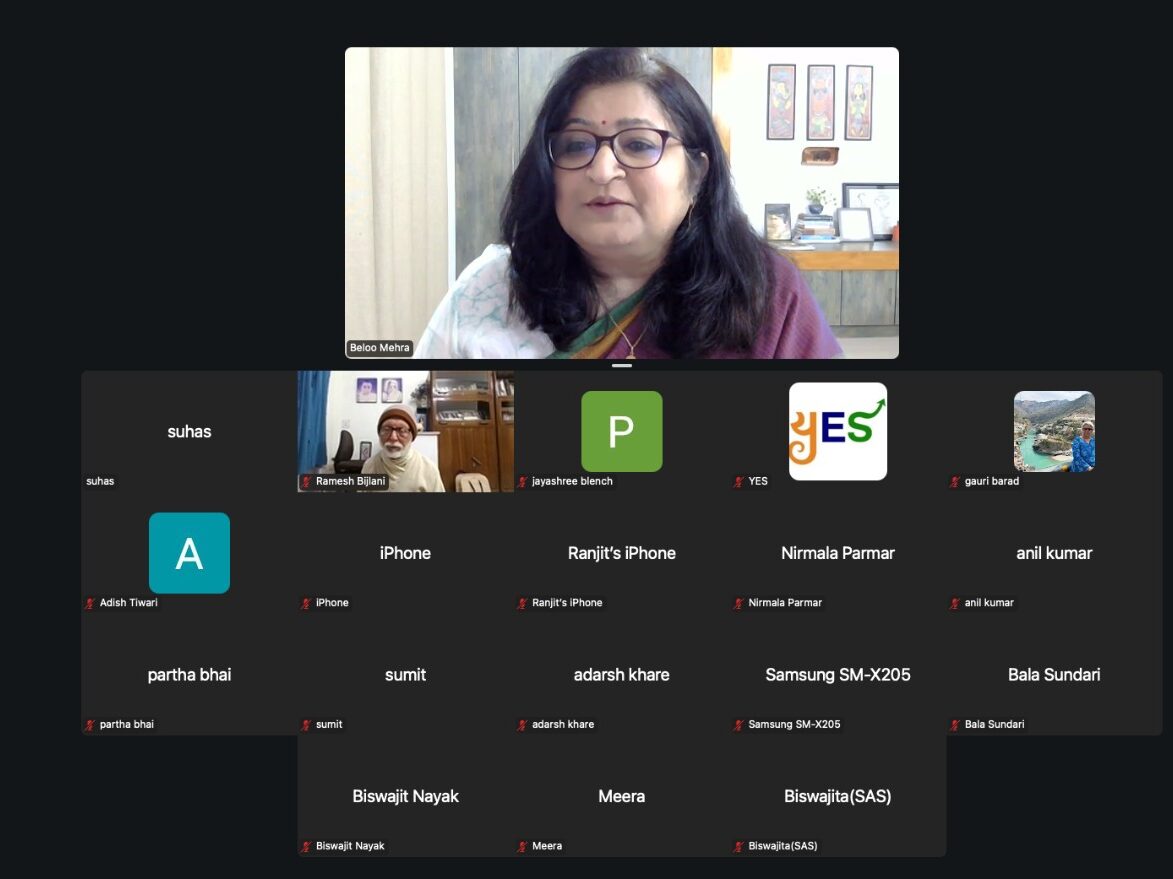
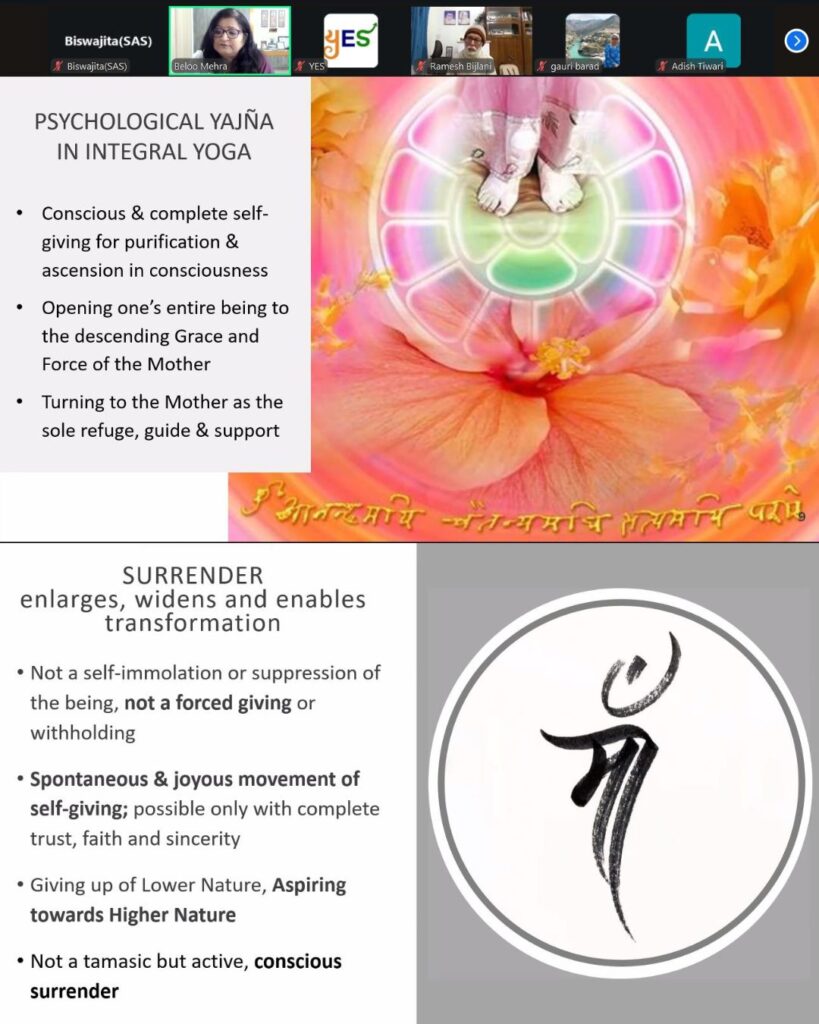
Dr. Mehra emphasised that yajña was never about asceticism or self-mortification, rather it has alway sbeen about illumination, purification, and transformation. Using Sri Aurobindo’s symbolic interpretation, she pointed out that the psychological understanding of three key offerings (which correspond to our physical, vital and mental parts of the being) and two key fruits of Vedic Yajña. The idea was a complete self-offering to the gods who will transform these parts into their divine nature. And the journey of Yajña is thus the journey of becoming divine.”
Dr. Mehra then spent some time discussing Sri Aurobindo’s explanation of the cosmic aspect of the Yajña as described in the Purusha Sūkta of the RigVeda. This Sukta describes the Supreme Reality sacrificing itself to become the universe. This is what Sri Aurobindo speaks of as Involution —Spirit limiting itself to manifest as Matter. At each stage, consciousness of Unity or Oneness is veiled, giving rise to Many.
Reading a few lines from Savitri, Dr. Mehra said that Sri Aurobindo speaks of the Sacrifice of the Divine Mother, who in essence through her dynamic sacrifice has made it possible for the entire existence to be not only infused with the Divine Spark but also sowed the possibility of an evolutionary journey back to the Oneness of the Supreme Source. The World-Mother accepts sorrow and unconsciousness so that creation can exist and aspire to unite with its Source. This is the foundation of all evolution of consciousness, Dr. Mehra explained.
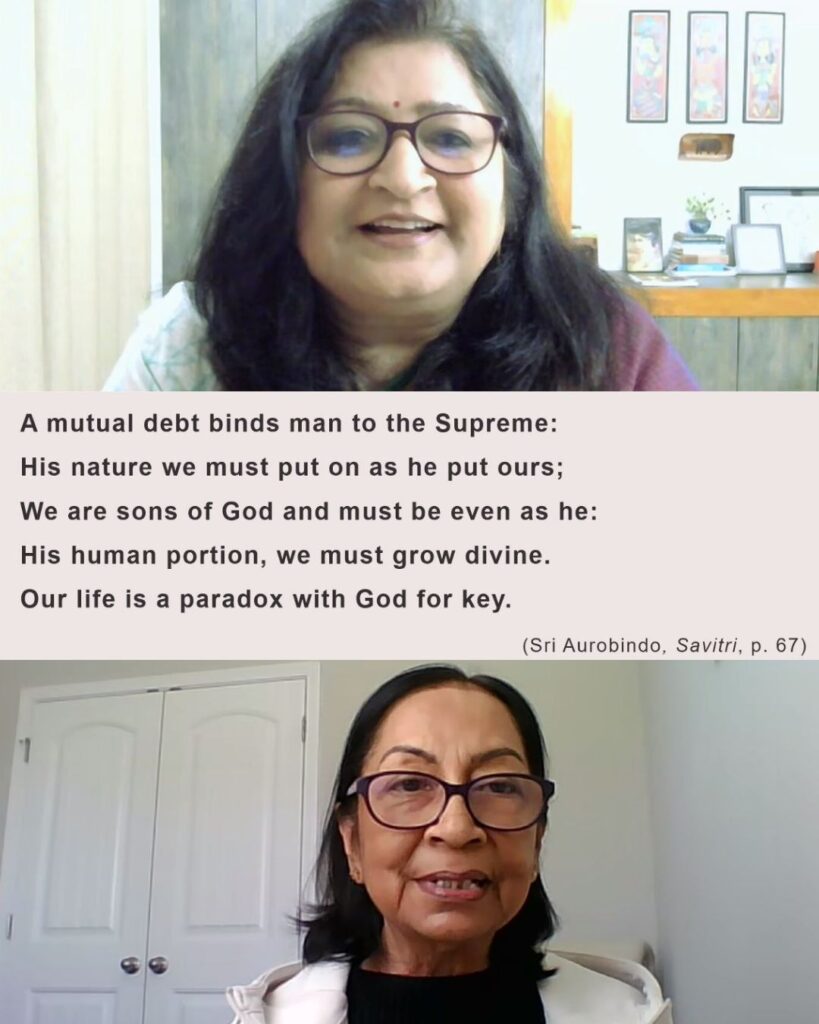
Evolution is the reverse movement—a rediscovery of Unity through expansion of consciousness. The essential nature of evolutionary sacrifice is the denial of ego through self-giving to the Divine. Sacrifice symbolizes the cosmic labor—the ascent of manhood to godhead, Dr. Mehra pointed out.
Moving the discussion further, Dr. Mehra said that in Integral Yoga, Yajña becomes an inner surrender. Every thought, feeling, and act must be offered into the inner fire of aspiration. True surrender is not suppression—it is a joyous movement of self-giving, built on faith and sincerity.
The sādhaka has to open himself or herself to the Mother’s force descends from above. This is the force which can truly transform the lower nature. The sādhaka thus becomes a living yajñavedi, turning life into conscious sacrifice, said Dr. Mehra.
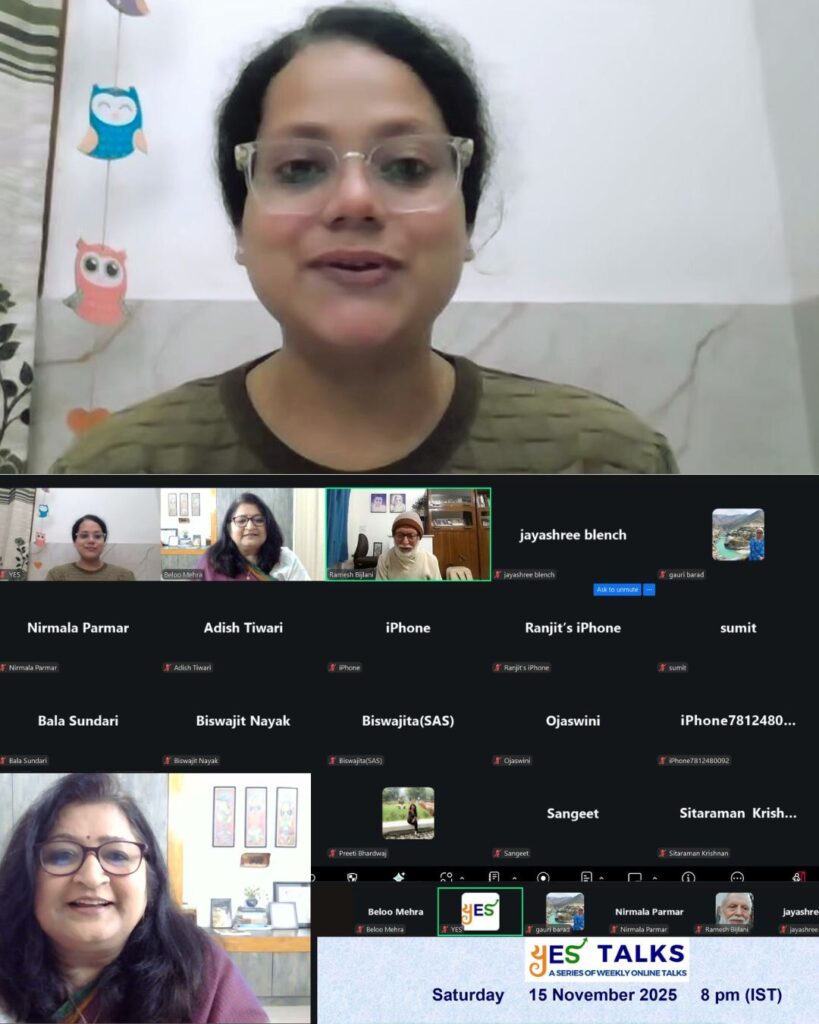
Dr. Mehra pointed out that just like the Vedic mantras, in the path of Integral Yoga also one may take the support of different mantras like ‘Om Anandamayi Chaitanyamayi Satyamayi Parame’ and ‘Om Namo Bhagavate Sri Aravindaya’. They help center the consciousness. Even the simplest mantra—‘Ma’—can invoke the Mother’s force.
Dr. Mehra concluded her talk by reading a few lines from Savitri, which were the inspiration behind the title of her talk.
A mutual debt binds man to the Supreme:
His nature we must put on as he put ours;
We are sons of God and must be even as he.
Our life is a paradox with God for key.
The session was appreciated by the participants. A thoughtful discussion followed Dr. Mehra’s talk in which some aspects related to the etymological understanding of several Vedic words were pointed out. For example, Dr. Mehra pointed out that the root of the word यज् also means to act persistently, to love, to give wholly—hence sacrifice as self-giving.
